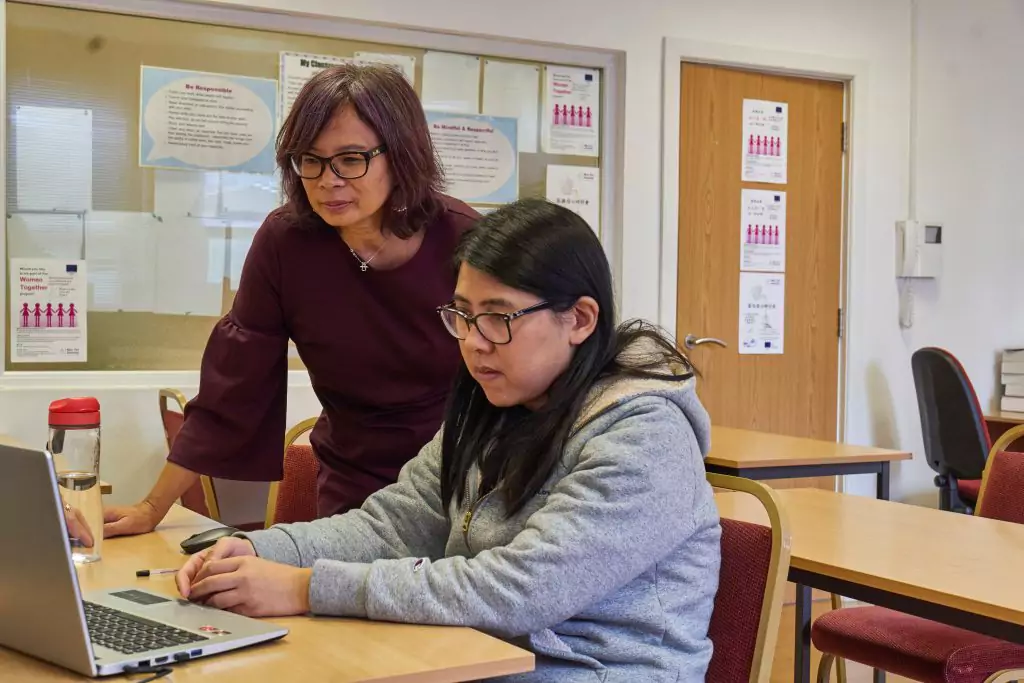
Daniela Mattson, a proactive junior at Sammamish High School, shines a light on the critical need for improved support systems for multilingual learners (MLLs) within schools. Being an active member of her community, leading a mentoring program for multilingual learners, and a budding journalist for her school newspaper “The RedHawk Talk”, Daniela combines her passion for social justice with her flair for storytelling to highlight the challenges faced by MLL students.

✅ AI Essay Writer ✅ AI Detector ✅ Plagchecker ✅ Paraphraser
✅ Summarizer ✅ Citation Generator
Key Takeaways:
- The current education system often doesn’t offer sufficient support for MLL students, despite a mandate to ensure equal access to educational opportunities.
- There’s a significant disparity between the number of MLL students and the resources available to them.
- A holistic approach, considering both academic and emotional well-being, is essential for these students to thrive.
Mattson points out a pressing issue within the education system, where MLL students, who have varying levels of English proficiency, are expected to perform on par with their peers. This is particularly challenging as there is a disparity in the support resources available for a growing population of MLL students, especially in areas like the Bellevue School District, where over 40% of the students identify as multilingual.
“MLL students possess varying levels of English knowledge, so it’s not fair to place them on the same track as everyone else.”
She gives voice to MLL students like Jairo Cruz, a sophomore who shares, “Sometimes they’ll put the subtitles on, while other teachers don’t. They still want me to turn in the assignments, but some aren’t giving me the whole correct explanation.”
Current Support Systems and their Limitations
Schools have been attempting to address these challenges by employing MLL facilitators. However, as Mattson points out, this support is stretched thin, leaving many MLL students with inadequate resources. This results in a disparity in the quality of education received by MLL students compared to their peers.
Teachers are also searching for the best ways to tailor their classes to support MLL students but often feel overwhelmed by the plethora of strategies they need to juggle.
A Call for a More Inclusive Approach
Mattson emphasizes the importance of a more comprehensive approach in improving the experience of MLL students, one that focuses not only on the academic aspect but also on their social and emotional well-being, fostering stronger relationships with teachers and promoting a sense of belonging.
She quotes Ben Jones, an MLL facilitator at Sammamish:
“They’re more disconnected than others because they don’t speak the language.”
Ben Jones
Mattson argues for inclusivity to ensure MLL students feel welcomed and integrated into the school community.
Conclusion
Mattson makes a rallying cry for school districts to make concerted efforts in providing equal educational opportunities to MLLs. She reflects on the words of Jesse Deshayes, a Bellevue MLL curriculum developer, who believes that schools should view linguistic diversity as an asset. As a society, Mattson urges us to focus more on the academic and emotional needs of MLL students, harnessing the power and potential inherent in a diverse student body.
Related articles:
The Importance of Mental Health in College: From Student’s Perspective
From ‘Achievement Gap’ to ‘Education Debt’: Why Language in Education Matters
Language Learners Debate Break Lengths: How Long Can You Pause Your Studies Without Losing Progress?
Follow us on Reddit for more insights and updates.





Comments (0)
Welcome to A*Help comments!
We’re all about debate and discussion at A*Help.
We value the diverse opinions of users, so you may find points of view that you don’t agree with. And that’s cool. However, there are certain things we’re not OK with: attempts to manipulate our data in any way, for example, or the posting of discriminative, offensive, hateful, or disparaging material.